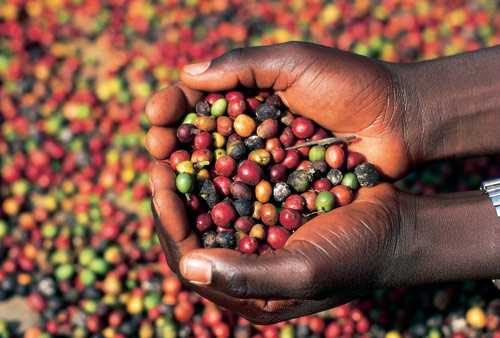The U.S. Agency for International Development awarded Michigan State University a cooperative agreement to help the African Great Lakes region maintain its international position in the coffee market. The cooperative agreement launches USAID’s African Great Lakes Region Coffee Support Program under Feed the Future, the U.S. Government’s global hunger and food security initiative.
The cooperative agreement amounts to $1.8 million.
Specialty coffee accounts for a major share of the coffee industry in Rwanda and has had considerable success in international markets, but low productivity and plant diseases are threatening the long-term viability of coffee farming in the country.
To address these threats, MSU and USAID are rolling out the Feed the Future African Great Lakes Region Coffee Support Program (AGLC). The project is funded through Feed the Future, the U.S. Government’s global hunger and food security initiative.
The coffee sector in the African Great Lakes region – the main source of cash income for millions of smallholder farmers in Rwanda and surrounding areas – is in jeopardy due to declining productivity in the field and the increasingly prevalent antestia bug, a pest that, while not dangerous or harmful to humans, causes affected coffee beans to taste like raw potatoes.
“We will take on these combined threats through an integrated program of applied research, farmer capacity building and policy engagement,” said Dan Clay, MSU’s director of Global Programs in Sustainable Agri-food Systems.
“The solution will require a public-private sector coordinated approach across the entire value chain, including producers, washing stations, dry mills, exporters and the government agencies that support the sector’s growth.”
The goal is to dramatically reduce the effects of antestia bug infestation and related potato-taste defect (PTD), as well as raise farm-level productivity, two changes that will improve smallholder farmer incomes and help to sustain the Africa Great Lakes region’s reputation for producing some of the highest-quality coffees in the world, Clay added.
MSU and USAID have been helping to strengthen Rwanda’s specialty coffee industry for the last 15 years. Building on that experience, the university will inform coffee sector stakeholders in the African Great Lakes region of the most effective practices for controlling the antestia bug and PTD.
Working together, they’ll also establish a policy environment that will provide incentives for producers to invest their labor, land and cash resources in these practices.
A seemingly fundamental contradiction is that coffee productivity in the region is among the lowest in the world, yet international buyers consistently rate Rwandan coffees among the best in the world. Program leaders will work to create an environment that will increase investments and link prices to quality.
The team also will increase awareness of the issues through radio, SMS and other outreach channels, publicizing how they affect the entire value chain, from growers to coffee baristas.
Additional partners in this endeavor include Coffee Exporters & Processors Association of Rwanda, Starbucks and the National Agricultural Export Development Board in Rwanda.
“We know that the path to global food security cannot be forged by governments alone. We’re excited to leverage these alliances and the tremendous market knowledge of our private sector partners to promote an enabling environment for sustainable and inclusive growth in the African Great Lakes region’s coffee sector,” said Tjada McKenna, Deputy Coordinator for Development for Feed the Future and Assistant to the Administrator in the U.S. Agency for International Development’s (USAID) Bureau for Food Security.
This year’s inaugural International Coffee Day, a global celebration of the coffee sector’s diversity, quality and passion, will be celebrated on Oct. 1. The day serves as an opportunity for coffee lovers to support the 25 million farmers in low-income countries whose livelihoods depend on the crop.
“As we mobilize to kick off this exciting program, we pause to consider how important coffees from the African Great Lakes region have become to coffee connoisseurs from around the world,” Clay said.
“We invite all to celebrate the AGLC launch with us on International Coffee Day, and what its success will mean to farmers across the region.”
About Feed the Future: Feed the Future is the U.S. Government’s global hunger and food security initiative.
With a focus on smallholder farmers, particularly women, Feed the Future supports partner countries in developing their agriculture sectors to spur economic growth and trade that increase incomes and reduce hunger, poverty and undernutrition. For more information, visit www.feedthefuture.gov.


















